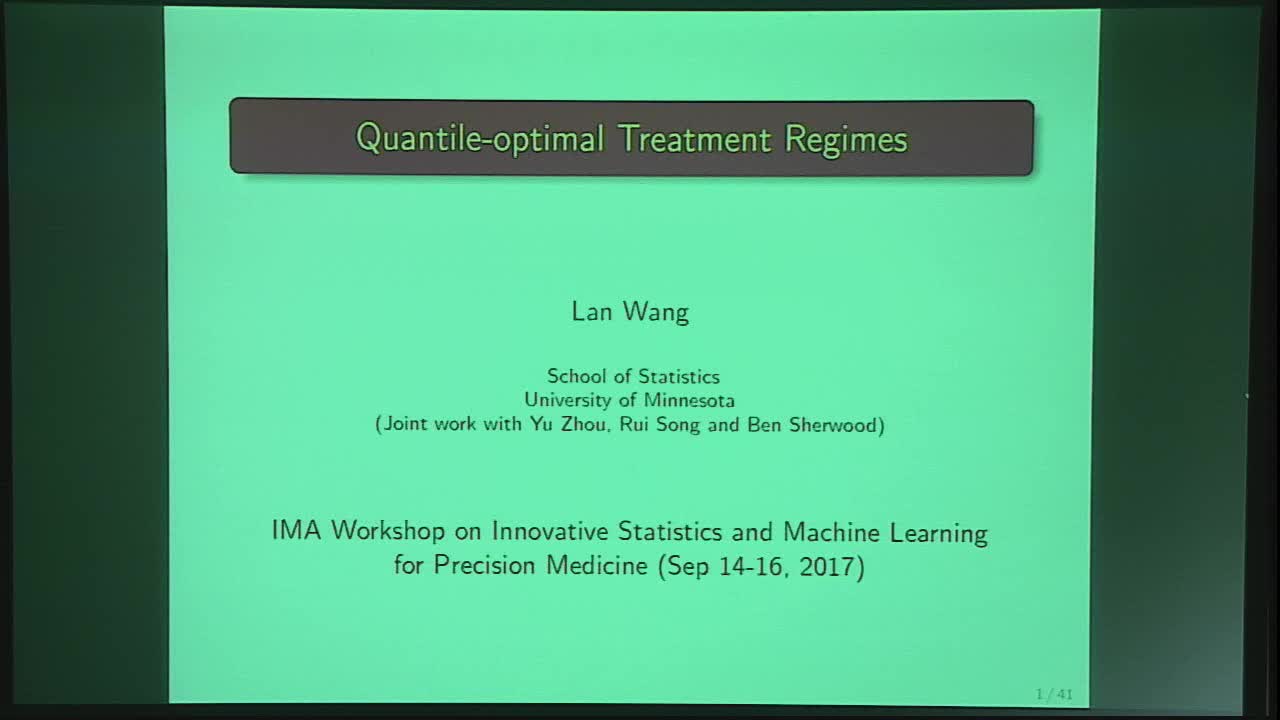Quantile-Optimal Treatment Regimes
Presenter
September 14, 2017
Keywords:
- dynamic treatment regime; nonstandard asymptotics; optimal treatment regime; precision medicine; quantile criterion
Abstract
Finding the optimal treatment regime (or a series of sequential treatment regimes) based on individual characteristics has important applications in areas such as precision medicine, government policies and active labor market interventions. In the current literature, the optimal treatment regime is usually defined as the one that maximizes the average benefit in the potential population. This paper studies a general framework for estimating the quantile-optimal treatment regime, which is of importance in many real-world applications.
Given a collection of treatment regimes, we consider robust estimation of the quantile-optimal treatment regime,
which does not require the analyst to specify an outcome regression model. We propose an alternative formulation of the estimator as a solution of an optimization problem with an estimated nuisance parameter. This novel representation allows us to investigate the asymptotic theory of the estimated optimal treatment regime using empirical process techniques. We derive theory involving a nonstandard convergence rate and a non-normal limiting distribution. The same nonstandard convergence rate would also occur if the mean optimality criterion is applied, but this has not been studied. Thus, our results fill an important theoretical gap for a general class of policy search methods in the literature. We investigate both static and dynamic treatment regimes. In addition, doubly robust estimation and alternative optimality criterion such as that based on Gini's mean difference or weighted quantiles are investigated. Numerical simulations demonstrate the performance of the proposed estimator. A data example from a trial in HIV+ patients is used to illustrate the application.
(Joint work with Yu Zhou, Rui Song and Ben Sherwood)
